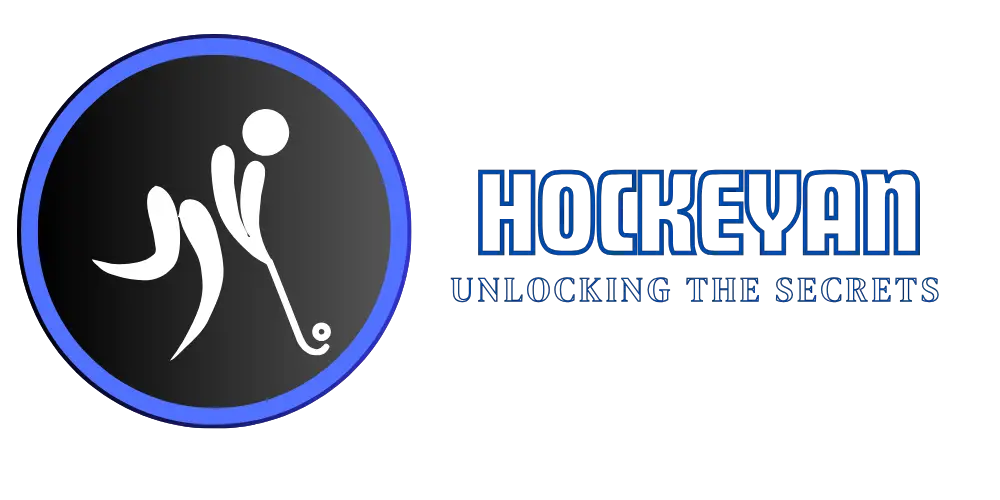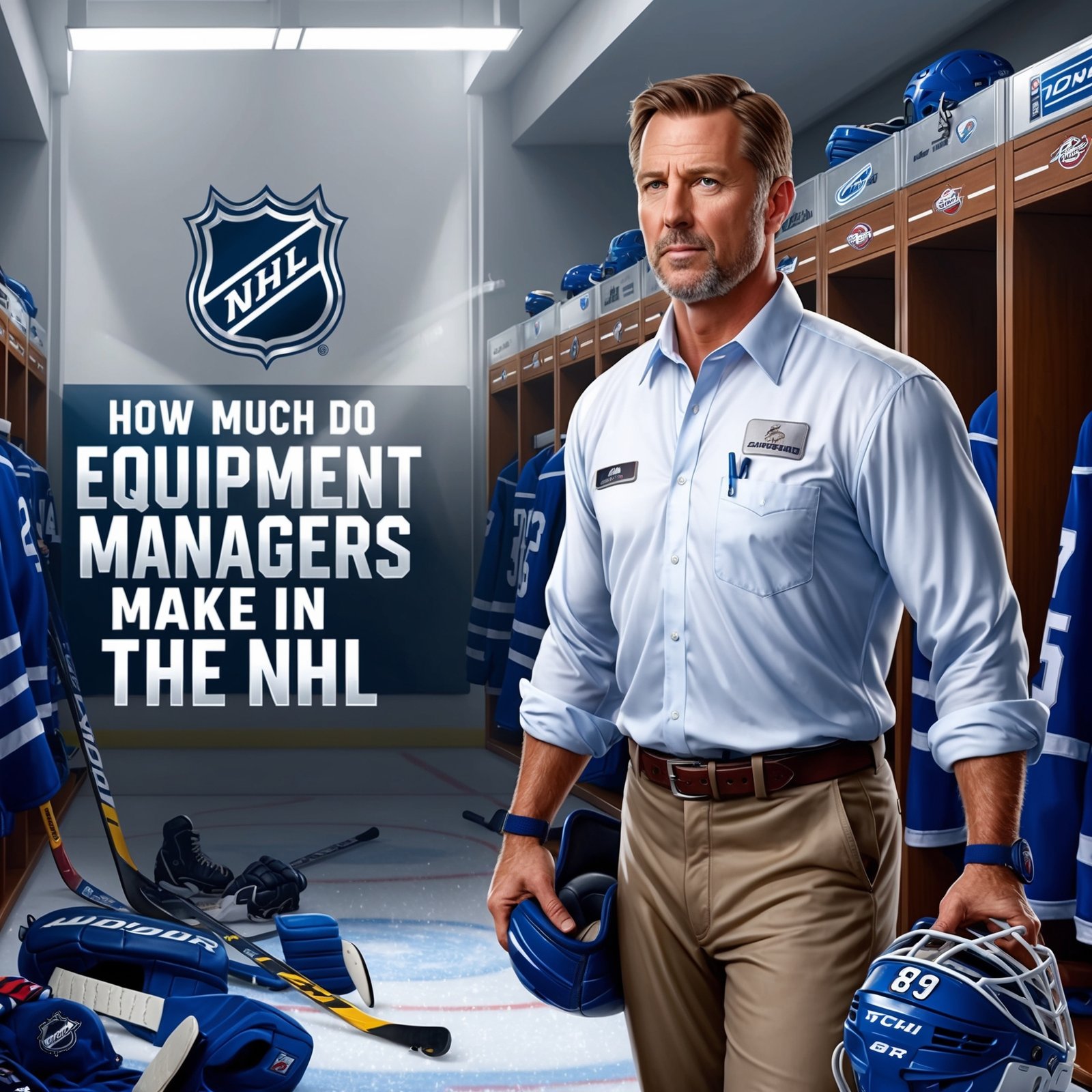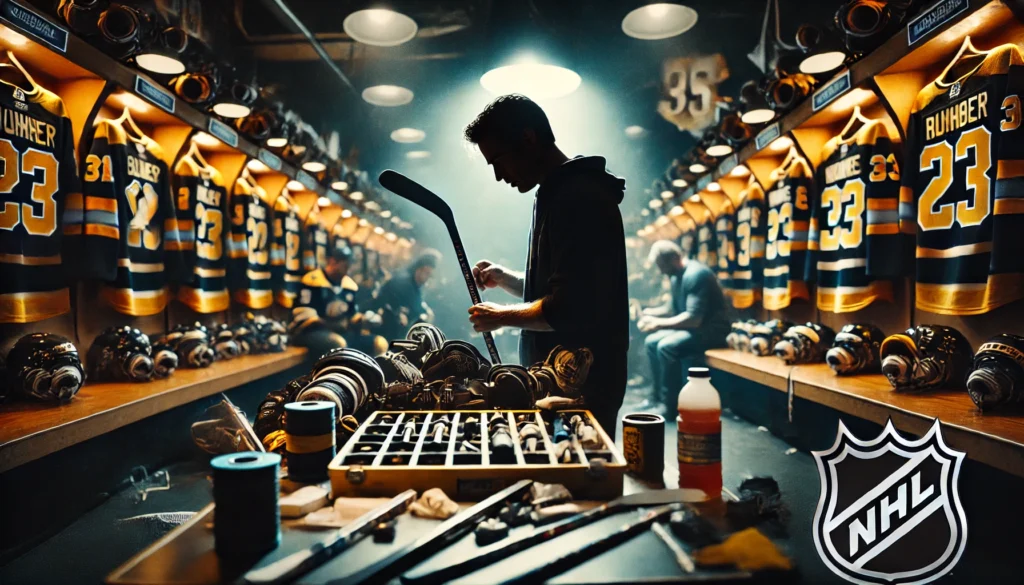Uncover the How Much Do Equipment Managers Make In The NHL? Learn about the average pay and compensation packages in this crucial position. Find out more here.
How Much Do Equipment Managers Make In The NHL
As an avid hockey enthusiast, I have always been intrigued by the behind-the-scenes operations that make the game run smoothly. One crucial role that often goes unnoticed is that of the equipment manager. These unsung heroes ensure that every player is outfitted with the necessary gear, from skates to helmets, and that all equipment is in top condition for optimal performance on the ice.
In the fast-paced National Hockey League (NHL), equipment managers are indispensable to each team’s staff. They work tirelessly to maintain the equipment, manage inventory, and ensure players have everything they need to compete at the highest level. Their dedication and attention to detail play a vital role in the success of every NHL franchise.
Importance of equipment managers in the NHL
The importance of equipment managers in the NHL must be balanced. They are the backbone of every team, ensuring that players can focus solely on their performance without worrying about the state of their gear. From sharpening skates to repairing broken sticks, these professionals handle many tasks that directly impact the players’ ability to perform at their best.
Moreover, equipment managers are responsible for maintaining a safe and hygienic environment in the locker rooms and equipment areas. They ensure that all equipment is adequately cleaned and sanitized, reducing the risk of infections and promoting a healthy environment for the players.
Factors that influence an equipment manager’s salary
The salary of an NHL equipment manager is influenced by several factors, including:
- Experience and tenure
- The team’s budget and market size
- Qualifications and certifications
- Responsibilities and workload
- Performance and Reputation
Experienced equipment managers with a proven track record and extensive knowledge of the latest equipment and technologies tend to command higher salaries. Additionally, teams in larger markets with bigger budgets often can offer more competitive compensation packages.
The average salary range for NHL equipment managers
According to industry reports and insider sources, the average salary range for NHL equipment managers falls between $60,000 and $120,000 per year. However, it’s important to note that these figures can vary significantly based on the abovementioned factors.
Some entry-level or assistant equipment managers may start at the lower end of the range. In contrast, experienced head equipment managers for successful franchises can earn salaries well into the six-figure range.
Highest-paid equipment managers in the NHL
While teams and individuals closely guard specific salary figures, it is widely known that some of the highest-paid equipment managers in the NHL work for teams like the Toronto Maple Leaf’s, New York Rangers, and Montreal Canadiens.
With their rich histories and substantial fanbases, these franchises can afford to offer top-tier compensation packages to attract and retain the best equipment management talent in the league.
Benefits and perks of being an NHL equipment manager
In addition to competitive salaries, NHL equipment managers often enjoy a range of benefits and perks that make their careers even more rewarding. These may include:
- Comprehensive health insurance and retirement plans
- Opportunities for travel and attending away games
- Access to exclusive team events and facilities
- Potential for bonuses and incentives based on team performance
Furthermore, the camaraderie and sense of being part of a close-knit team can be an invaluable perk for many equipment managers, who develop strong bonds with players and staff throughout their careers.
How to become an equipment manager in the NHL
Becoming an NHL equipment manager is a challenging but rewarding path. Here are some typical steps to pursue this career:
- Gain experience: Start as an equipment manager or assistant at lower levels, such as minor league teams, junior hockey organizations, or even high school or college programs.
- Obtain certifications: Consider obtaining relevant certifications, such as those offered by the Professional Hockey Athletic Trainers Society (PHATS) or the Society of Professional Hockey Equipment Managers (SPHEM).
- Build a network: Attend industry events, conferences, and workshops to network with professionals in the field and stay up-to-date with the latest trends and best practices.
- Develop specialized skills: Acquire specialized skills in areas like equipment repair, inventory management, and team logistics, which can make you a more valuable asset to NHL teams.
- Pursue opportunities: Keep an eye out for job openings and internships with NHL teams, and be prepared to relocate if necessary, as these positions are highly competitive.
Challenges faced by NHL equipment managers
While the role of an NHL equipment manager can be advantageous, it also comes with its fair share of challenges. Some of the most significant challenges include:
- Demanding schedule: Equipment managers often work long hours, including nights, weekends, and extended road trips, to ensure players have everything they need for games and practices.
- Physical demands: The job can be physically demanding, as it involves lifting and carrying heavy equipment and being on your feet for extended periods.
- Pressure and stress: With the high stakes of professional hockey, equipment managers face constant pressure to perform at their best and ensure that players have no equipment-related issues that could impact their performance.
- Budgeting and inventory management: Effectively managing equipment budgets and inventory can be a challenging task, especially for teams with limited resources.
Salary negotiation tips for aspiring equipment managers
If you’re an aspiring equipment manager looking to negotiate a competitive salary in the NHL, here are some tips to keep in mind:
- Research industry standards: Familiarize yourself with the average salary ranges for equipment managers in the NHL and the compensation offered by specific teams.
- Highlight your experience and achievements: Emphasize your relevant experience, certifications, and any notable achievements or contributions you have made in previous roles.
- Demonstrate your value: Clearly articulate how your skills and expertise can benefit the team and contribute to their success on and off the ice.
- Be flexible and open to negotiation: Be prepared to negotiate and consider non-salary benefits or perks that could enhance your overall compensation package.
- Seek professional guidance: Consult with a career coach or negotiation expert who can provide valuable insights and strategies for securing the best offer.
Conclusion: The rewarding career of an NHL equipment manager
Being an NHL equipment manager is a demanding yet advantageous career path. While the salaries may not be as astronomical as the players, they offer a comfortable living and the opportunity to be part of the exciting world of professional hockey.
Beyond the financial compensation, equipment managers play a vital role in ensuring the success of their teams and the well-being of the players. They forge strong bonds with players and staff, and their dedication and attention to detail contribute significantly to the franchise’s overall performance and success.
For those with a passion for hockey and a keen eye for detail, a career as an NHL equipment manager can be a fulfilling and enriching experience. With hard work, dedication, and a commitment to excellence, aspiring equipment managers can carve out a rewarding career in this essential behind-the-scenes role.
How much do equipment managers make in the NHL
Credit: LA Kings





